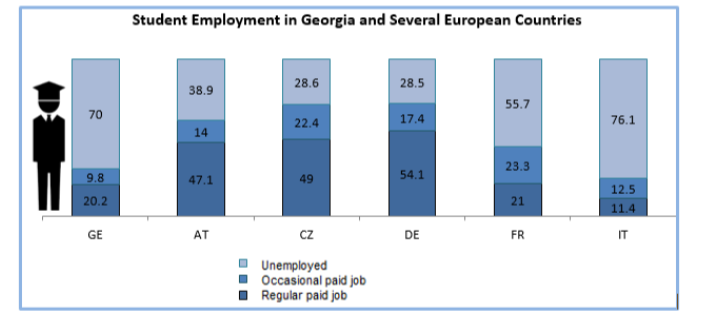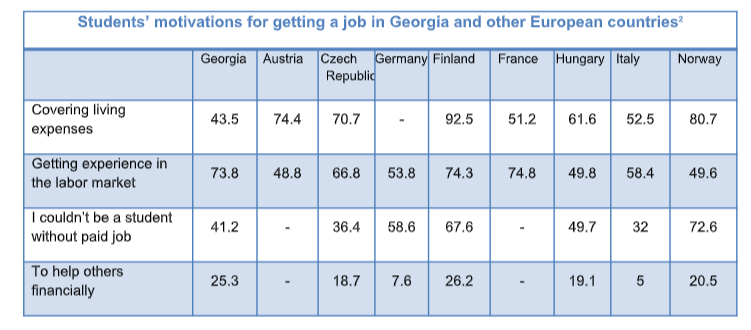Georgian students have a fairly low employment rate;
the most frequent reason for working named by the employed
is getting experience in labor market.
Because of employment difficulties in Georgia, students often have to work while getting education. They have several different reasons for trying to establish themselves on labor market: part of them works for financial security, others are in better condition – they’re working to accumulate professional experience, and some do not work at all while being a student. According to the data obtained in international research Eurostudent VI, Georgian students have fairly low rate of employment - 30% of them is employed in temporary or permanent positions. 1 But it should be mentioned that student’s employment status is in significant part determined by their age, while the age of Georgian students is one of the lowest among European countries.
As for the link between the field students are employed in and their chosen direction in studies – for more than a half of Georgian students (63%) their job is close to the program they’ve chosen in University, while 37% works in different field.
In the scope of Eurostudent survey, students answered the question, who they perceived themselves to be in the first place – employees or students. It turns out, that 70% of Georgian students consider themselves to be students in the first place and employees second, while 30% thinks otherwise.
Students have different reasons for getting jobs, but most of them (73,8%) name getting the experience in labor market as primary reason for getting a job. 43,5% has to work to cover living expenses, which is a fairly low indicator compared to other countries; relatively large number of European students name this as a reason for getting a job. 41,2% of employed Georgian students maintain their student status because they have a job. Among reasons named there’s also a motivation to help others financially (25,3%), which wasnamed relatively more often by Georgian students than by students from other European countries.




